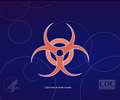Contents:
Introduction to Biological Weapons
Biological Weapon Production
The BTWC
Original U.S. Interpretation
Debate about the NBACC
References Read More »

Contents:
Introduction to Biological Weapons
Biological Weapon Production
The BTWC
Original U.S. Interpretation
Debate about the NBACC
References Read More »
 This training describes key principles for securing biological agents in research laboratories and biomedical facilities where loss, theft, release or intentional misuse of the agent might have significant public health or economic consequences. This training defines the term biosecurity, delineates differences and similarities between biosafety and biosecurity, and discusses components of a laboratory biosecurity program.
This training describes key principles for securing biological agents in research laboratories and biomedical facilities where loss, theft, release or intentional misuse of the agent might have significant public health or economic consequences. This training defines the term biosecurity, delineates differences and similarities between biosafety and biosecurity, and discusses components of a laboratory biosecurity program.
Successful biosecurity programs should have full support from all levels of management, be site-specific, and be based on an understanding of facility assets and needs. Identifying which agents and infrastructure need to be protected is an individual organization’s management decision. Biosecurity programs should apply corresponding security measures by using a graded approach to reduce risk to an acceptable level.
Reflecting the critical threat posed by biological warfare and terrorism in a post 9-11 world, Medical Aspects of Biological Warfare (an update of Medical Aspects of Chemical and Biological Warfare published in 1997) addresses the weaponization of biological agents, categorizing potential agents as food, waterborne, or agricultural agents or toxins, and discusses their respective epidemiology. Recent advances in biomedical knowledge are presented that include descriptions of individual agents and the illnesses induced. Authors discuss biotoxins and explain methods for early identification for anthrax, plague, smallpox, alphaviruses, and staphylococcal enterotoxins. Case studies and research on successful management practices, treatments, and antidotes are also included.
With the increasing reality of chemical and biological attacks in war and terrorism, this book is a single-source compendium of the important aspects of chemical and biological agents including descriptions of the agents, and the pathophysiology of the injuries, diagnosis, and management of the injuries.
 The National Biosafety and Biocontainment Training Program (NBBTP), a partnership between the Division of Occupational Health and Safety (DOHS) and the National Institute of Allergy and Infectious Diseases (NIAID) at the National Institutes of Health in Bethesda, Maryland is responding to this need by providing three-tiered Professional Certificate Programs for Biosafety and Biocontainment (B&B) professionals as well as Operations and Maintenance (O&M) personnel working in high containment facilities.
The National Biosafety and Biocontainment Training Program (NBBTP), a partnership between the Division of Occupational Health and Safety (DOHS) and the National Institute of Allergy and Infectious Diseases (NIAID) at the National Institutes of Health in Bethesda, Maryland is responding to this need by providing three-tiered Professional Certificate Programs for Biosafety and Biocontainment (B&B) professionals as well as Operations and Maintenance (O&M) personnel working in high containment facilities.
The NBBTP also offers a complete catalog of Professional Development Courses. These courses may be taken individually or as part of the Professional Certificate Program. Courses are provided at various locations, including NBBTP Designated Training Facilities across the country.